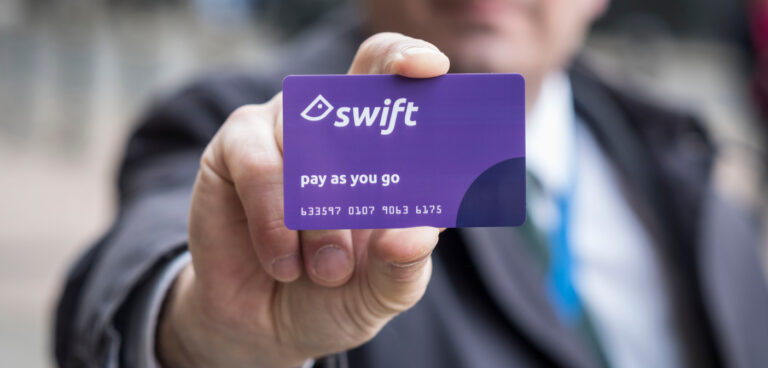Authorities across the Midlands are calling on the UK government to fund a £20m region-wide smart ticketing platform to simplify how passengers use and pay for public transport.
According to Derby City Council, a so-called tap-and-cap system, similar to the platform used by Transport for London, would allow travellers to pay for trips on the region’s rail, bus and tram network via their smartphone, travel pass or bank card.
The new contactless model would cap the payments at a daily or weekly limit for those travelling across the Midlands region, regardless of travel mode or transport operator. The smart platform could also be adapted to include emerging transport modes such as e-bike hire and the rental of e-scooters.
While smart ticketing initiatives exist in Nottingham, via the Robin Hood travel card, and in parts of the West Midlands via Swift, the UK’s second-biggest public transport payment system after London’s Oyster scheme, the new platform being proposed would be the first to function at a Midlands-wide level, and encompass all public transport operators.
Development of the platform, which will be based on Swift payment technologies, will be led by Transport for West Midlands (TfWM) with initial rollout of the plans being implemented by TfWM and Nottingham City Council. Strategic regional transport body Midlands Connect will work with other local authorities across the region to integrate more areas into the scheme, which could be operational by 2022.
Andy Street, mayor of the West Midlands, said: “The introduction of the Swift card in the West Midlands has been a great success, with more than 50 million journeys undertaken last year. But although the card is the biggest of its kind outside of London, we must always look to keep improving.
“Not only will this funding from government allow us to cap payments to ensure better value for money, but it also means we could integrate the technology with our new e-scooter trial and soon-to-be announced bike share scheme, allowing seamless travel on all modes of transport across the region.”





